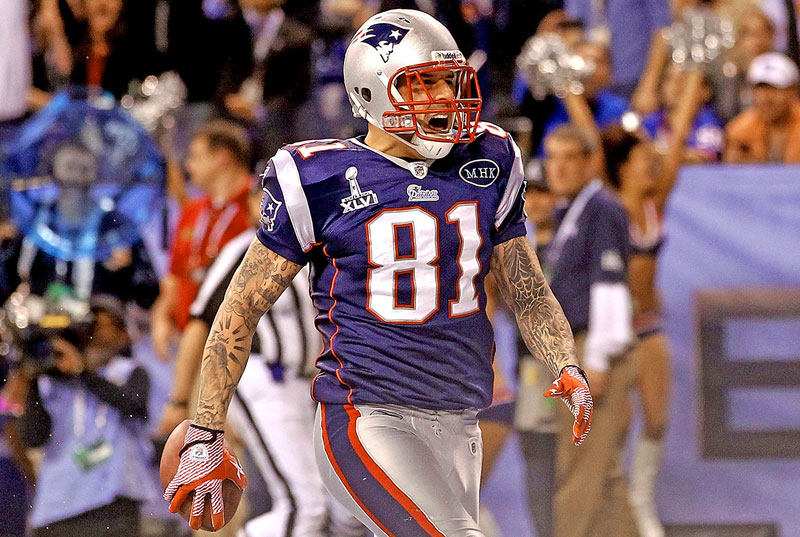Aaron Hernandez's Brain Will Be Studied for CTE

Get the world’s most fascinating discoveries delivered straight to your inbox.
You are now subscribed
Your newsletter sign-up was successful
Want to add more newsletters?

Delivered Daily
Daily Newsletter
Sign up for the latest discoveries, groundbreaking research and fascinating breakthroughs that impact you and the wider world direct to your inbox.

Once a week
Life's Little Mysteries
Feed your curiosity with an exclusive mystery every week, solved with science and delivered direct to your inbox before it's seen anywhere else.

Once a week
How It Works
Sign up to our free science & technology newsletter for your weekly fix of fascinating articles, quick quizzes, amazing images, and more

Delivered daily
Space.com Newsletter
Breaking space news, the latest updates on rocket launches, skywatching events and more!

Once a month
Watch This Space
Sign up to our monthly entertainment newsletter to keep up with all our coverage of the latest sci-fi and space movies, tv shows, games and books.

Once a week
Night Sky This Week
Discover this week's must-see night sky events, moon phases, and stunning astrophotos. Sign up for our skywatching newsletter and explore the universe with us!
Join the club
Get full access to premium articles, exclusive features and a growing list of member rewards.
The brain of former NFL player Aaron Hernandez will be donated to an academic center that studies a brain disorder linked to playing football, according to Massachusetts officials.
Hernandez, who was 27 and serving a life sentence in prison for murder, was found dead in his prison cell shortly after 3 a.m. on Wednesday (April 19), according to a statement from Joseph D. Early Jr., the district attorney of Worcester County in Massachusetts, who aided in the investigation of Hernandez's death. The death was ruled a suicide, the statement said.
Although Hernandez's body was released on Wednesday, officials withheld some of his tissues, including his brain, until the cause of his death could be determined. Now that this investigation has been completed, Hernandez's brain will be released to Boston University's Chronic Traumatic Encephalopathy Center, which is the wish of his family, the statement said. [10 Things You Didn't Know About the Brain]
Researchers at this center study CTE, a degenerative brain disease. The disorder is thought to be caused by repeated blows to the head that damage brain tissue, leading to a buildup of an abnormal protein called tau. So far, the center has identified CTE in nearly 100 former football players.
The condition can cause symptoms such as memory loss, impaired judgment, impulse-control problems, aggression, depression, anxiety and suicidality, the CTE center said. Several other former NFL players who committed suicide, including Adrian Robinson, Dave Duerson and Junior Seau, were later found to have CTE.
The condition has also been found in other professional athletes, including hockey players and boxers, as well as military veterans, the CTE center said. Currently, the condition can be diagnosed only after death.
Hernandez's attorney, Jose Baez, said he hoped the study of Hernandez's brain could increase researchers' knowledge of CTE and help determine what happened to the athlete, according to The New York Times.
Get the world’s most fascinating discoveries delivered straight to your inbox.
"We need to leave no stone unturned, and we need to specifically do everything possible to find out what happened," Baez said.
As part of a class-action lawsuit settlement finalized in 2016, the NFL has agreed to compensate former NFL players for damages related to brain disorders that the athletes develop and that may result from concussions.
Original article on Live Science.

Rachael is a Live Science contributor, and was a former channel editor and senior writer for Live Science between 2010 and 2022. She has a master's degree in journalism from New York University's Science, Health and Environmental Reporting Program. She also holds a B.S. in molecular biology and an M.S. in biology from the University of California, San Diego. Her work has appeared in Scienceline, The Washington Post and Scientific American.
 Live Science Plus
Live Science Plus











